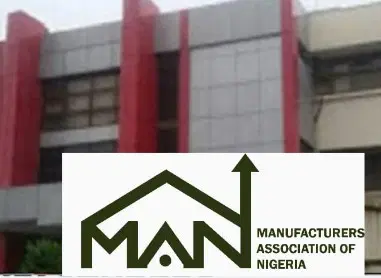Abuja, Nigeria – The Manufacturing Association of Nigeria (MAN) has revealed that a staggering 60% of manufacturing firms in the North-East region have ceased operations due to a challenging business environment, exacerbated by persistent insecurity.
MAN’s Director General, Mr. Segun Ajayi-Kadir, highlighted these concerns during a panel session at the 13th anniversary lecture of the January 9 Collective (J9C). Themed “Business and Policy Strategy: Examining the Role of Reforms in Enhancing the Ease of Doing Business in Nigeria”, the session provided a platform to address critical issues affecting Nigeria’s industrial sector.
Call for a Comprehensive Industrial Policy
Ajayi-Kadir emphasized the urgent need for a robust industrial policy to drive sustainable development and incentivize private-sector participation. According to him, the lack of an effective policy framework has hindered the sector’s growth, stifled inter-sectoral collaboration, and negatively impacted Nigeria’s foreign relations.
“Nigeria does not currently have an industrial policy to facilitate engagement between sectors or guide foreign investment strategies. Instead, the country has prioritized ‘hot money’—short-term investments—over sustainable Foreign Direct Investment (FDI),” he said.
Ajayi-Kadir stressed the importance of attracting long-term investments in industries such as mining and manufacturing, which add value to raw materials and foster inclusive economic development.
Historical Neglect of the Manufacturing Sector
The DG lamented the government’s historical neglect of the manufacturing industry, describing it as a sector treated with lip service rather than being recognized as a critical driver of economic progress. He warned that the persistent exodus of foreign and local manufacturers from Nigeria sends a negative signal to potential investors.
“When I joined MAN about 30 years ago, there were far more industries in operation. Over the years, we have lost 732 members of the association, and 60% of manufacturers in the North-East have shut down. This decline is a direct consequence of insecurity and an unfavorable operating environment,” Ajayi-Kadir said.
Insecurity and Economic Consequences
The North-East region, plagued by insurgency and other security challenges, has become a less viable location for businesses. Many manufacturers have been forced to shut their doors, leading to job losses, reduced economic activity, and a weakening of the local economy.
Ajayi-Kadir asserted that reviving the manufacturing sector must begin with supporting domestic industries. “If you revive these struggling businesses, the need to aggressively court foreign investors will diminish. Foreign Direct Investment will naturally flow into an economy that prioritizes its people and creates a conducive environment for business,” he stated.
The Way Forward
The MAN DG called for urgent reforms to improve Nigeria’s ease of doing business and foster industrial growth. He urged policymakers to focus on:
- Strengthening domestic industries: Provide financial support, infrastructure, and security to enable local manufacturers to thrive.
- Attracting sustainable FDI: Prioritize investments that align with Nigeria’s long-term economic goals, particularly in industrialization and mining.
- Implementing an industrial policy: Develop a framework to promote sectoral collaboration, enhance foreign relations, and ensure the manufacturing sector’s prosperity.
Ajayi-Kadir concluded with a call for inclusivity, urging stakeholders to recognize that no foreign investor can develop Nigeria more effectively than its citizens. He stressed that empowering local industries is the first step toward achieving sustainable economic growth.
For more insightful business reports, stay tuned to Hobnob News, your premier source for credible and comprehensive news coverage.

